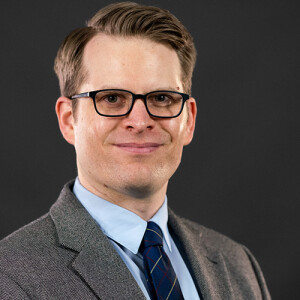In his book, The Culture Code, Daniel Coyle defined organizational culture as “a set of living relationships working toward a shared goal.” This is a value-neutral definition. When the living relationships are unhealthy and subset groups of people have their own shared agendas, culture is created—but not the kind of healthy culture needed for organizational effectiveness. When this kind of poisonous culture exists, missional clarity or visionary leadership are largely wasted efforts. John Maxwell said it succinctly, “Culture eats vision for lunch.”
Pandemic stress, political turmoil, and social unrest have revealed the true cultural climate in churches and ministry organizations. In many cases, these external pressures have resulted in stress fractures—widening rifts as people separate according to their passions and agendas. Rather than healthy relationships working toward shared goals, too many churches and organizations have discovered their pseudo-community was a façade. Their culture was greenhouse-ready, only able to thrive in a controlled environment. Sadly, many are now reeling with conflict, division, and attrition.
What can be done to improve your corporate culture, the way your community lives and works together? One common response is to focus on the first part of the definition—living relationships. Improving culture clearly involves confronting unhealthy relational patterns, as well as affirming and rewarding healthy relational behavior. Our Christian faith provides motivation and guidance to do this as we adopt and demonstrate Christian virtues described in the Bible. That’s a worthy beginning. Creating healthy culture—what some people like to call community—has a strong relational component.
But the other part of the definition is also significant. We must also articulate and adopt shared goals. Healthy organizational culture is not a perpetual relationship retreat; it’s about coming together to do something. That something is accomplishing shared goals which gives us a sense of shared fulfillment and success.
Creating a healthy corporate culture in a church or ministry organization is about both healthy relationships and kingdom-focused goals. It is about treating each other like Christians are supposed to and working together on kingdom-focused goals. It requires rejecting self-serving behavior and resisting the temptations of lesser agendas. If community dysfunction is eating your vision for lunch, improving relationships and clarifying functional goals will improve your organizational culture and get you on a better path forward.
Read More

“Faith is a tree known by its fruits”: The Gisle Johnson Project
The Gisle Johnson Project is a new research endeavor spearheaded by Robb Torseth

Excerpt — Towards a Clearer Understanding of Jonathan Edwards’s Biblical Typology: A Case Study in the ‘Blank Bible’
Dr. Cameron Schweitzer provides new insights into Jonathan Edwards’s often mischaracterized typology.
Listen
Prophets | Jonah
If you haven’t watched the Veggie Tales movie…you should after listening to this episode.
While the book of Jonah is placed later in the section of Prophets in the Bible, it actually takes place first in the historical timeline. This week, Tyler and Dr. Wegner

Pastor of The King’s Church
Stephen Coppenrath, Pastor of The King’s Church in Ontario California, shares his opinion on the place of entertainment in church, being hospitable in Western culture, and including children of all ages in worship.
Check out The King’s Church current series on Y

Watch

Jonathan Edwards and the Asbury Revival
Chris Chun and Chris Woznicki discuss the signs of true revival, signs of the work of the Holy Spirit, and why it is important to critically assess the characteristics of revival in a spirit of charity.

Jonathan Edwards and the Baptists | Douglas Sweeney, Nathan Finn and Chris Chun
Dr. Douglas Sweeney and Dr. Nathan Finn joined Dr. Chris Chun for a panel discussion on Jonathan Edwards, recorded live at the SBC Annual Meeting in Anaheim.




